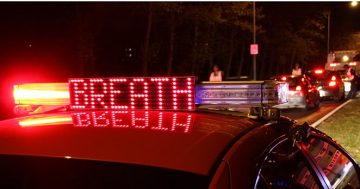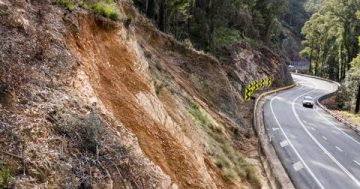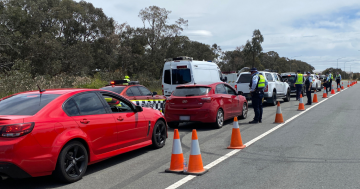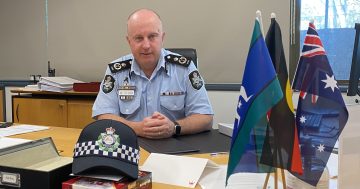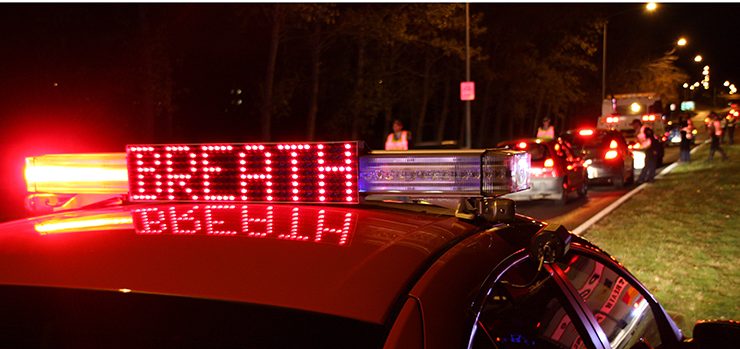
Police have shifted to a “more targeted” approach to RBTs since 2020. Photo: ACT Policing.
The NRMA has called for an immediate increase in the number of Random Breath Tests (RBTs), funded by revenue from speed camera fines, to reduce the ACT’s road death toll.
Less than 14,000 RBTs were conducted in the 2021/22 financial year, dropping considerably since before COVID, when 98,000 were conducted in 2018/19 and a record 144,256 in 2013/14.
Over 5 per cent of tests conducted last year returned a positive result, double the previous year’s rate. In 2013/14, the positive return rate on tests was 0.9 per cent.
The road toll across the ACT in 2022 stands at 18, the second highest on record.
The call comes after ACT Policing publicly announced a shift from the traditional bulk approach of RBT to a “more targeted one”.
Not only was this said to free up staff to handle bushfire emergencies, COVID restrictions and prolonged protest activity, but it also avoided the locations of RBTs breaking out on social media and drivers simply choosing another way to get home.
“This approach, as expected, resulted in a higher proportion of positive RBT results,” an ACT Policing spokesperson said.
But the NRMA believed a shift back to the ‘anytime anywhere’ approach is critical to reducing drink driving and road deaths.
NRMA spokesperson Peter Khoury said this was particularly important during the festive season.
“Too many Canberrans are taking the risk of drink-driving and the NRMA is firmly of the view that the best deterrent is for more resourcing to go into RBT all year round – if drivers see more random testing they are less likely to take the risk. It is the ultimate deterrent,” he said.
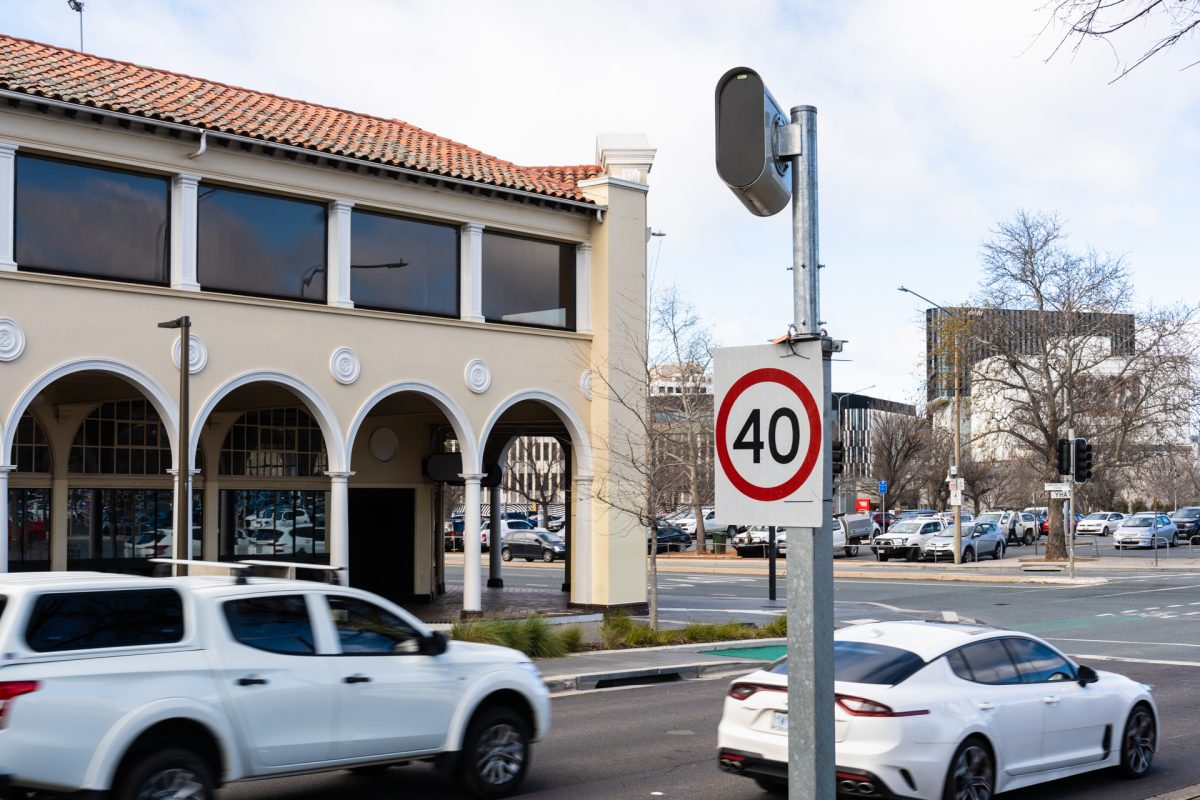
The ACT Government’s speed camera revenue has doubled in the past year, mainly due to this new 40 km/h zone on Northbourne Avenue. Photo: Region.
The NRMA has called on ACT Policing to adopt the model used in other states – 1.1 tests per licence holder. Based on 2021 figures, this would require almost 360,000 RBTs conducted annually.
So far this year, ACT Policing has committed significant resources to catch dangerous drivers and car thieves under Operation Toric. Toric targets recidivist offenders, and 147 arrested have been made so far.
“ACT Policing still conducts RBTs under the anytime-anywhere approach and anticipates conducting a higher number of random breath tests in 2023,” a spokesperson said.
“The drink-driving message is not new. We would prefer people choose between drinking or driving, not both.”
As for where the money could come from, the NRMA has an idea there too.
The ACT Government’s traffic infringement revenue more than doubled last year to almost $61 million, due largely to the introduction of the 40 km/h speed limit on Northbourne Avenue and surrounding parts of Civic.
“The ACT Government raised an extra $33.9 million in revenue from speed cameras last year and the NRMA believes more of that should be directed into the work of Highway Patrols and a significant increase in the number of RBT across the ACT,” Mr Khoury said.
“2022 was a terrible year on our roads and we do not want a repeat in 2023.”











